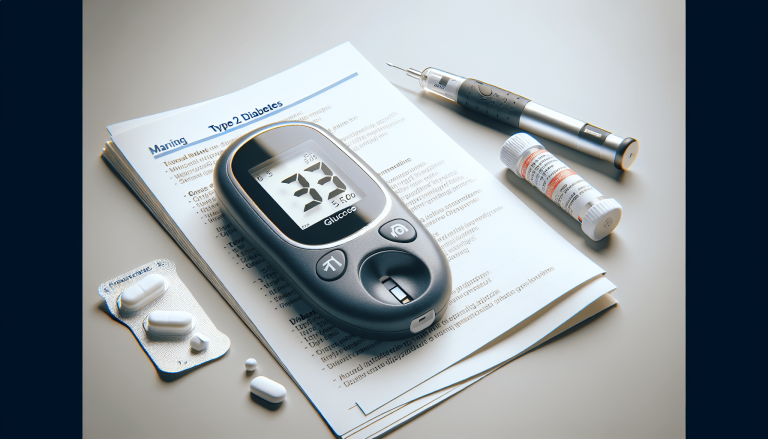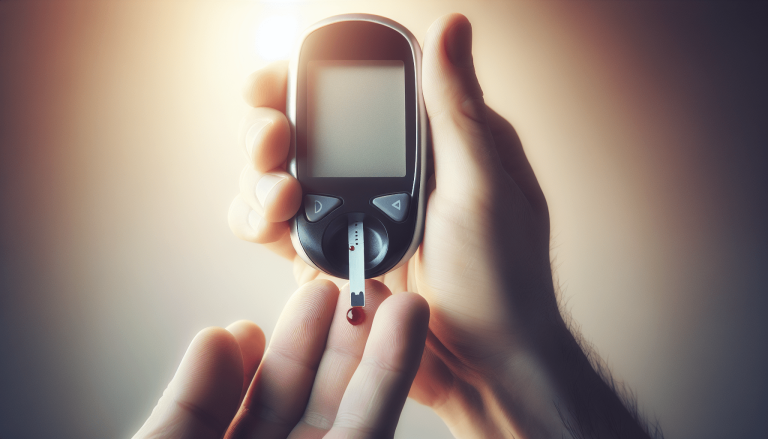What Is The Life Expectancy Of Someone With Type 2 Diabetes?
If you’ve been recently diagnosed with type 2 diabetes or care for someone who has, you might be curious about how it impacts life expectancy. While it’s natural to have concerns, the good news is that with proactive management, a healthy lifestyle, and appropriate medical care, individuals with Type 2 diabetes can lead full, active lives. This article dives into factors influencing life expectancy, offering insights and tips on maintaining a balanced life while managing this condition effectively. Together, let’s uncover the key elements that can help maximize both the quality and length of life for those navigating Type 2 diabetes. Have you ever wondered what the life expectancy is for someone with type 2 diabetes? If so, you’re not alone. This is a common question for those diagnosed with the condition and their loved ones. Living with type 2 diabetes comes with its challenges, but understanding the factors that influence life expectancy can help you manage the disease more effectively and lead a fulfilling life.

Understanding Type 2 Diabetes
What Is Type 2 Diabetes?
Type 2 diabetes is a chronic condition that affects the way your body metabolizes sugar (glucose), which is an essential source of energy. When you have type 2 diabetes, your body either resists the effects of insulin—a hormone that regulates the movement of sugar into your cells—or doesn’t produce enough insulin to maintain normal glucose levels.
How Is It Different From Type 1 Diabetes?
Unlike type 1 diabetes, which is typically diagnosed in childhood and involves the immune system attacking insulin-producing cells, type 2 diabetes is more common in adults and is often related to lifestyle factors such as diet and exercise.
Common Symptoms
Some common symptoms you might experience if you have type 2 diabetes include increased thirst, frequent urination, sudden weight loss, fatigue, and blurry vision. Recognizing these symptoms early on is crucial for timely diagnosis and effective management.
Factors Affecting Life Expectancy
Overall Health
Your overall health plays a significant role in determining your life expectancy. Factors such as diet, exercise, and weight management can greatly impact how well you manage diabetes and hence your lifespan.
Age at Diagnosis
Being diagnosed with type 2 diabetes at a younger age can affect your life expectancy more significantly compared to being diagnosed later in life. This is because younger individuals may live with the condition for a longer period, leading to a higher chance of complications.
Blood Sugar Control
The better you manage your blood sugar levels, the less likely you are to develop complications. Poorly managed blood sugar can lead to cardiovascular diseases, kidney damage, and other serious health issues, reducing your life expectancy.
Presence of Complications
Having complications such as neuropathy, retinopathy, or cardiovascular diseases can negatively impact your life expectancy. The earlier you detect and manage these complications, the better your overall prognosis will be.
| Factor | Impact on Life Expectancy |
|---|---|
| Overall Health | Better overall health can improve management and life expectancy |
| Age at Diagnosis | Younger diagnosis can lead to longer duration of the disease |
| Blood Sugar Control | Better control can reduce complications and enhance longevity |
| Presence of Complications | Increases risk and can reduce life expectancy |
Managing Type 2 Diabetes
Diet and Nutrition
A balanced diet is crucial in managing type 2 diabetes. Consuming a variety of nutrient-rich foods like vegetables, fruits, whole grains, and lean proteins can help you maintain stable blood sugar levels. Avoiding excessive sugar and refined carbs is also important.
Exercise
Regular physical activity can help you manage your weight, improve your insulin sensitivity, and lower blood sugar levels. Aim for at least 150 minutes of moderate aerobic activity or 75 minutes of vigorous activity each week, alongside strength training exercises.
Medication
Depending on your condition, your healthcare provider may prescribe medications to help manage your blood sugar levels. These can include metformin, sulfonylureas, or insulin. Always follow your doctor’s advice and regularly check your blood sugar levels.
Regular Check-ups
Regular medical check-ups are essential for monitoring your condition and catching potential complications early. Make sure to have periodic eye exams, foot exams, and kidney function tests to stay on top of your health.
Complications and How They Affect Life Expectancy
Cardiovascular Diseases
People with type 2 diabetes are at a higher risk of developing cardiovascular diseases such as heart attack and stroke. Maintaining good blood sugar levels, along with managing blood pressure and cholesterol, is essential for reducing this risk.
Kidney Disease
Diabetes is a leading cause of kidney disease (nephropathy). Uncontrolled blood sugar can damage your kidneys over time, leading to chronic kidney disease or even kidney failure, which can significantly reduce life expectancy.
Neuropathy
Diabetic neuropathy is a type of nerve damage that can occur due to diabetes. It most often affects the legs and feet but can also impact other parts of the body. Managing your blood sugar levels can help prevent or slow the progression of neuropathy.
Retinopathy
Diabetic retinopathy is a condition that affects the eyes and can lead to blindness if left untreated. Regular eye exams and maintaining good blood sugar levels can help manage this condition.
| Complication | Impact on Life Expectancy |
|---|---|
| Cardiovascular Diseases | Increases risk of heart attack/stroke, reducing longevity |
| Kidney Disease | Can lead to kidney failure, impacting overall health |
| Neuropathy | Affects quality of life and can lead to more severe problems |
| Retinopathy | Can lead to blindness, affecting daily functioning |

Psychological Impact and Support Systems
Mental Health
Living with a chronic condition like type 2 diabetes can take a toll on your mental health. Feelings of stress, anxiety, and depression are not uncommon. It’s essential to recognize these feelings and seek help when needed.
Support Systems
Having a strong support system can make managing diabetes much easier. Friends, family, and support groups can provide emotional support and practical advice, helping you navigate the complexities of the condition.
Professional Help
Don’t hesitate to consult healthcare professionals, including dietitians, endocrinologists, and mental health counselors. They can offer specialized advice to help you manage both the physical and emotional aspects of diabetes.
Technological Advances and Their Role
Continuous Glucose Monitors (CGMs)
CGMs provide real-time blood sugar readings, helping you manage your condition more effectively. These devices can alert you to dangerous blood sugar levels, allowing for timely interventions.
Mobile Apps
There are numerous mobile apps designed specifically for diabetes management. These apps can help you track your blood sugar levels, diet, exercise, and medication, making it easier to manage your condition on-the-go.
Telemedicine
Telemedicine allows you to consult healthcare providers from the comfort of your home. This can be particularly useful for maintaining frequent check-ups and consultations without the hassle of travel.
Lifestyle Changes for Better Management
Quit Smoking
Smoking can increase the risk of developing cardiovascular diseases, which are already a concern for those with type 2 diabetes. Quitting smoking can significantly improve your overall health and life expectancy.
Reduce Alcohol Consumption
Alcohol can affect your blood sugar levels and interact with diabetes medications. Reducing your alcohol consumption can help you maintain better control over your condition.
Stress Management
Chronic stress can impact your blood sugar levels. Engaging in stress-reducing activities such as yoga, meditation, or even hobbies you enjoy can help you manage your stress levels.
Future Research and Developments
New Medications
Ongoing research is constantly leading to the development of new medications that can help manage type 2 diabetes more effectively. These advancements offer hope for even better management and improved life expectancy.
Gene Therapy
Gene therapy is an exciting area of research that holds potential for treating or even curing diabetes in the future. While still in the experimental stages, it represents a promising avenue for improving life expectancy for people with type 2 diabetes.
Personalized Medicine
The future of diabetes management may include more personalized treatment plans based on individual genetic profiles. This tailored approach can potentially optimize treatment effectiveness and improve life expectancy.
Final Thoughts
Living with type 2 diabetes certainly comes with its set of challenges, but it doesn’t mean you can’t lead a fulfilling life. Understanding the factors that influence life expectancy, from early diagnosis and effective management to addressing complications, can empower you to take control of your condition. With advancements in medical technology, proper lifestyle changes, and strong support systems, you can significantly improve your quality of life and longevity.
Having a comprehensive management plan and regularly consulting healthcare professionals can make all the difference. Remember, knowledge is power, and the more you know, the better equipped you’ll be to manage your type 2 diabetes effectively. Stay motivated, stay informed, and take proactive steps towards a healthier life.
Additional Resources

Two years ago Stanford scientists uncovered this key inconsistency that’s been causing blood sugar levels to spike…
A shocking discovery that led to a scientifically formulated solution designed to address this very problem and stabilize blood sugar levels…
All you have to do is add these clinically proven anti-diabetic nutrients to your morning routine to reduce your glucose levels significantly in only 5 days…







